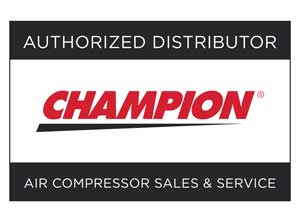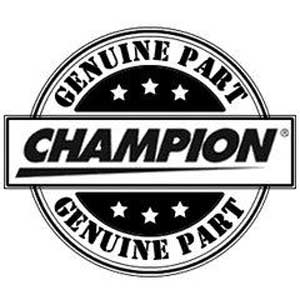Leaks can be a big source of wasted energy in an industrial compressed air system, sometimes wasting 20 to 30 percent of a compressor’s output. A typical plant that has not been well maintained will likely have a leak rate equal to 20 percent of total compressed air production capacity. On the other hand, proactive leak detection and repair can reduce leaks to less than 10 percent of compressor output.
In addition to being a source of wasted energy, leaks can also contribute to other operating losses.
Leaks cause a drop in system pressure, which can make air tools function less efficiently, adversely affecting production. In addition, by forcing the equipment to run longer, leaks shorten the life of almost all system equipment (including the compressor package itself).
Increased running time can also lead to additional maintenance requirements and increased unscheduled downtime. Finally, leaks can lead to adding unnecessary compressor capacity.
Q. Where do most leaks usually occur?
Answer:
While leakage can come from any part of the system, the most common problem areas are:
• Couplings, hoses, tubes, and fittings
• Pressure regulators
• Open condensate traps and shut-off valves
• Pipe joints, disconnects, and thread sealants.
Q. How much can compressor leaks cost my business?
Answer:
A small leak - no larger than 1/16" can cost an extra $523 a year*.
Add a few other small leaks here and there until you have leaks equal to a 1/4" opening...and now that "small leak" can cost you $8,382 a year.* It is easy to see that what seems like a small leak comes with a very high price tag over time.
*Costs calculated using electricity rate of $0.05 per kilowatt-hour, assuming constant operation and an efficient compressor.
Q. How do you estimate the SIZE of AIR LEAKS?
Answer:
It’s not very hard. We’ll use the “TIME METHOD” to estimate percentage % of loss due to air leaks in your plant.
1- Turn OFF all air operated end-user equipment.
2- Start your air compressor and let it cycle 3 times
3- Time the OFF-LINE / UNLOAD TIME (not pumping time) using your watch. (Example: 5 minutes)|
4- Time the ON-LINE / LOAD TIME (pumping time) using your watch. (Example: 2 minutes)
5- Calculate total percentage of air leaks as follows:
Add the OFF / UNLOAD and the ON / LOAD times together:
Example: T(5 minutes) + T (2 minutes)= 7 minutes
Divide ON / LOAD time T (2 minutes) by the total minutes: 2 ÷ 7 = 0.29
The result tells you 29% of your air compressor’s CFM’s are maintaining your AIR LEAKS.
This would mean that you are losing almost ONE THIRD of your compressed air to air leaks.
Q. What's the best way to detect and fix compressor leaks?
Answer:
Since air leaks are almost impossible to see, other methods must be used to locate them.
The best way to detect leaks is to use an ultrasonic acoustic detector, which can recognize the high-frequency hissing sounds associated with air leaks. These portable units consist of directional microphones, amplifiers, and audio filters, and usually have either visual indicators or earphones to detect leaks.
A simpler method is to apply soapy water with a paint brush to suspect areas. Although reliable, this method can be time consuming.
Q. How To Fix Leaks
Answer:
Leaks occur most often at joints and connections.
Stopping leaks can be as simple as tightening a connection or as complex as replacing faulty equipment, such as couplings, fittings, pipe sections, hoses, joints, drains, and traps. In many cases, leaks are caused by failing to clean the threads or by bad or improperly applied thread sealant. Select high quality fittings, disconnects, hose, tubing, and install them properly with appropriate thread sealant.
Non-operating equipment can be an additional source of leaks. Equipment no longer in use should be isolated with a valve in the distribution system.
Another way to reduce leaks is to lower the air pressure of the system. The lower the pressure differential across an orifice or leak, the lower the rate of flow, so reduced system pressure will result in reduced leakage rates. Stabilizing the system header pressure at its lowest practical range will minimize the leakage rate for the system. Once leaks have been repaired, the compressor control system must be re-evaluated to realize the total savings potential.
Establishing a Leak Prevention Program
There are two basic types of leak repair programs:
1. The leak tag program
2. The seek and repair program.
The” seek and repair” method is the simplest. As it states, you simply find the leak and repair it immediately.
With the leak tag program, the leak is identified with a tag and logged for repair at a later time. This is often a two-part tag; one part stays on the leak and the other part is turned into the maintenance department, identifying the location, size, and description of the leak to be repaired. The best approach depends on the type, size, and the culture/work practices of the facility. It is more likely that the best solution will be a combination of the two.
*SOURCE: Based on definitions taken from “Improving Compressed Air System Performance” published as a cooperative effort of the U.S. Department of Energy’s Office of Energy Efficiency and Renewable Energy (EERE) Best Practices and the Compressed Air Challenge®.

